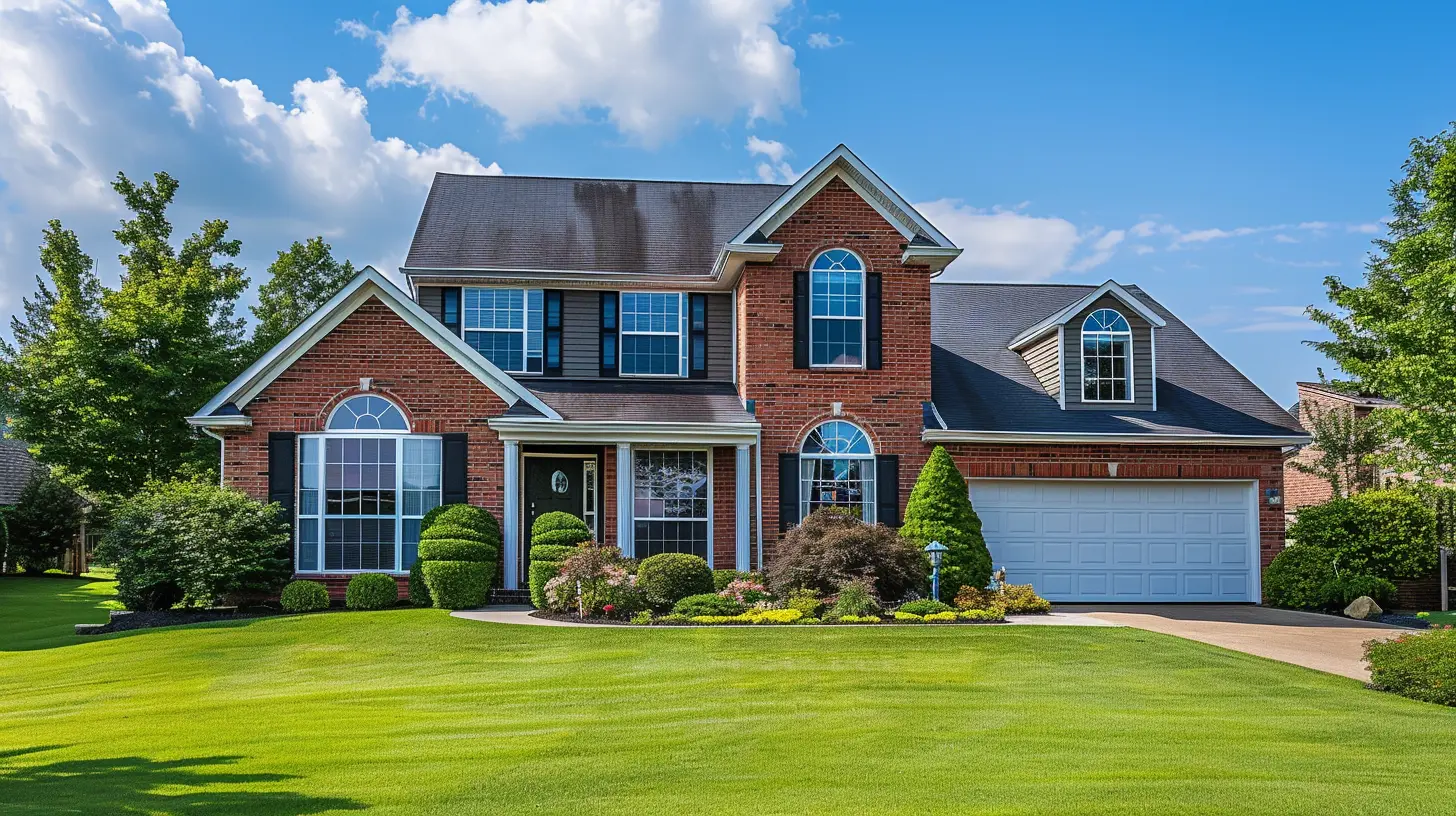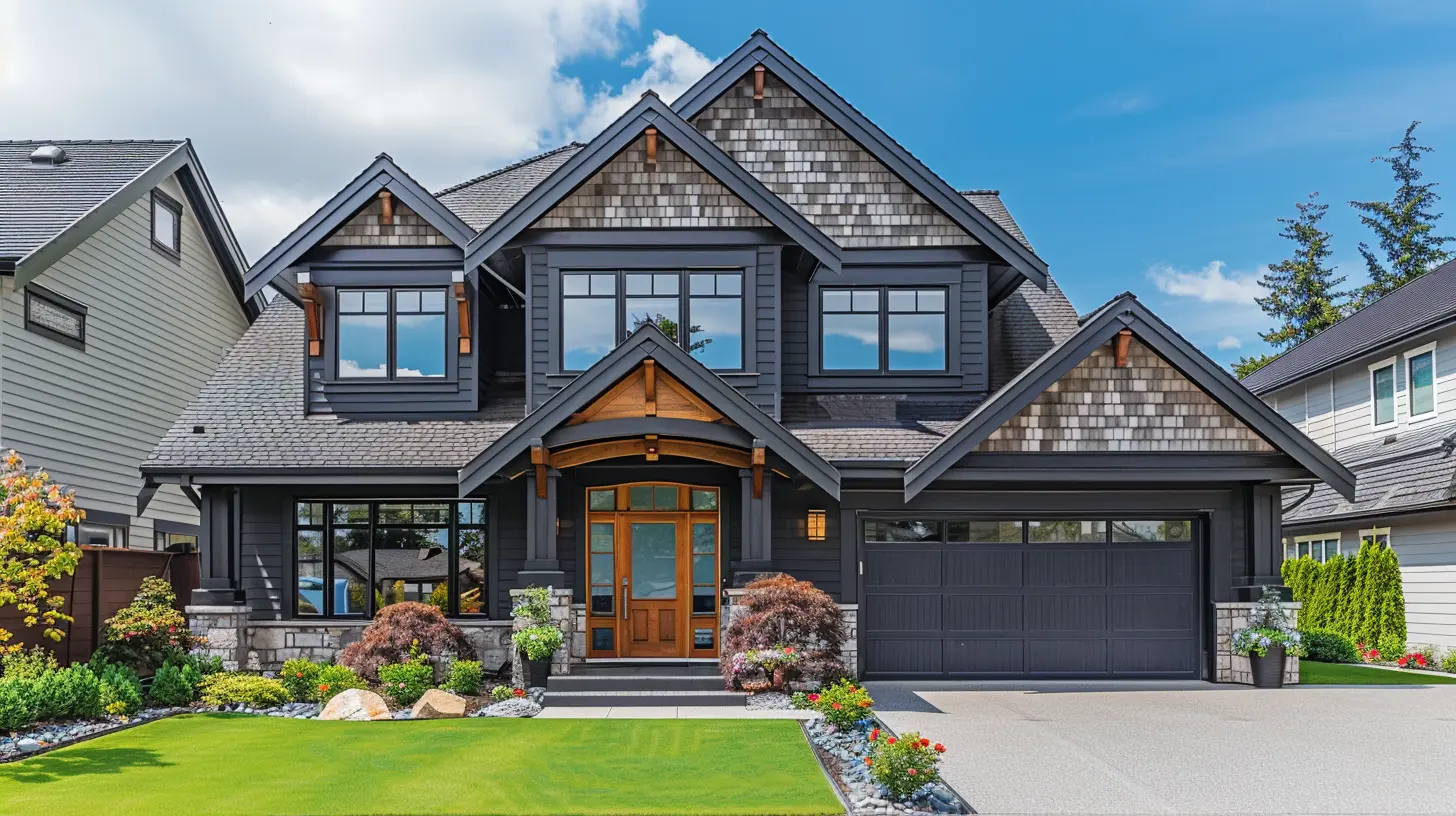How to Secure Financing for Your Foreclosure Purchase
11 June 2025
Buying a foreclosure can be a fantastic way to land a dream home at a bargain price. However, securing financing for a foreclosure purchase isn’t always as straightforward as getting a loan for a traditional home. Lenders see foreclosed properties as risky investments, which means you need to be well-prepared to navigate the financing process.
But don’t worry—I’ve got you covered! In this guide, we'll break down everything you need to know about financing a foreclosure, from understanding loan options to boosting your approval odds. Let’s dive in! 
Understanding the Challenges of Financing a Foreclosure
Foreclosed homes can be incredible deals, but they often come with issues like structural damage, unpaid property taxes, or missing appliances. That’s why lenders can be hesitant to approve traditional loans.Unlike standard home purchases, foreclosure financing has unique challenges:
- Stricter Loan Requirements – Many foreclosures are sold "as-is," meaning you’re responsible for any repairs. Lenders may require you to prove that the home is livable before approving financing.
- Shorter Closing Timelines – Banks or auction houses selling foreclosures often demand quick closings, giving you less time to secure funding.
- Higher Competition – Investors and cash buyers frequently target foreclosures, making it crucial to have financing lined up in advance.
Now that you know the hurdles, let's explore the best financing options to overcome them. 
Best Financing Options for a Foreclosure Purchase
Not all loans are created equal—especially when it comes to buying foreclosed properties. Let’s go over the most effective ways to finance your foreclosure purchase.1. Conventional Loans
A conventional loan is one of the most common financing options for buyers looking at foreclosures. However, lenders typically require the home to be in move-in condition.✔ Best For: Buyers purchasing homes that don’t need major repairs.
✔ Requirements: A solid credit score (typically 620+), a steady income, and at least a 3-20% down payment.
💡 Pro Tip: If the home needs repairs, consider a renovation loan (which we’ll cover next).
2. FHA 203(k) Loans (Renovation Loan)
If the foreclosure needs some TLC, an FHA 203(k) loan is a great option. This loan combines the purchase price with the cost of necessary renovations, meaning you don’t have to take out separate financing for repairs.✔ Best For: Buyers looking to purchase a fixer-upper.
✔ Requirements: A minimum credit score of 580 (sometimes 620) and a 3.5% down payment.
✔ Bonus: Government backing makes lenders more willing to approve it!
3. VA Loans (For Eligible Veterans & Service Members)
If you're a military veteran, VA loans offer an incredible opportunity to finance a foreclosure with no down payment and no private mortgage insurance (PMI). However, the home must meet VA property standards, which can be tricky with foreclosures.✔ Best For: Active-duty military, veterans, and eligible spouses.
✔ Requirements: A valid Certificate of Eligibility (COE) and proof of sufficient income.
4. Hard Money Loans
If traditional loans aren’t an option, hard money loans could be a fast alternative. These are short-term loans issued by private investors rather than banks.✔ Best For: Real estate investors and buyers planning a quick flip.
✔ Requirements: Higher interest rates and a loan term typically ranging from 6 to 24 months.
💡 Pro Tip: Hard money loans work best if you have an exit strategy—like refinancing or flipping the house for a profit.
5. USDA Loans (For Rural Homes)
If the foreclosure you're eyeing is in a rural area, a USDA loan could be an option. These government-backed loans offer low interest rates and zero down payment requirements for eligible properties.✔ Best For: Buyers looking for a foreclosure in rural areas.
✔ Requirements: The property must be in a USDA-approved rural area, and the buyer must meet income guidelines. 
Steps to Secure Financing for a Foreclosure
Now that you know your loan options, let’s walk through the steps to actually secure financing.Step 1: Check Your Credit Score & Finances
First things first—your credit score matters! A higher score means better loan terms, so if your credit needs improvement, take some time to:✔ Pay down outstanding debts.
✔ Avoid new credit inquiries.
✔ Correct any errors on your credit report.
💡 Pro Tip: Most lenders prefer a FICO score of at least 620 for conventional loans and 580 for FHA 203(k) loans.
Step 2: Get Pre-Approved for a Loan
A pre-approval letter shows sellers that you’re a serious buyer with financing already in place. To get pre-approved, you'll need:✔ Proof of income (pay stubs, W-2s, or tax returns).
✔ Bank statements and asset details.
✔ Employment verification.
Getting pre-approved not only speeds up the process but also strengthens your position if competing with cash buyers.
Step 3: Work with a Real Estate Agent Specializing in Foreclosures
Foreclosures can be complicated. A real estate agent who specializes in distressed properties can guide you through the legalities, financing options, and negotiation tactics.✔ They know how to spot good deals and avoid costly mistakes.
✔ They can help navigate bank-owned or auction purchases.
Step 4: Choose the Right Foreclosure Property
Not all foreclosed homes are good investments. Before making an offer, consider:- The home’s condition – Will it require costly repairs?
- Location – Is it in a desirable area for future value?
- Title history – Are there unpaid taxes or liens?
💡 Pro Tip: Hire a home inspector to uncover any hidden issues before committing.
Step 5: Prepare a Competitive Offer
Banks selling foreclosures typically want quick sales, meaning cash buyers and investors often have the upper hand. But don’t worry—you can strengthen your offer by:✔ Presenting your pre-approval letter upfront.
✔ Offering a larger earnest money deposit.
✔ Being flexible on the closing timeline.
Step 6: Close the Deal & Finalize Financing
Once your offer is accepted:✔ Finalize your loan terms with your lender.
✔ Conduct a final walkthrough to ensure no new damages.
✔ Sign all necessary paperwork and close the deal!
Congratulations—you’re now the proud owner of a foreclosure property! 🎉 
Final Thoughts
Buying a foreclosure can be an exciting way to snag a great deal, but securing financing requires preparation and insight. Whether you’re opting for a conventional loan, FHA 203(k), or even a hard money loan, the key is to understand your options and move quickly.With the right approach, you’ll be well on your way to turning a distressed property into a profitable investment or a dream home. Happy house hunting!
all images in this post were generated using AI tools
Category:
ForeclosuresAuthor:

Travis Lozano
Discussion
rate this article
2 comments
Laura Spencer
Securing financing for a foreclosure requires diligent preparation. Explore options like FHA loans, conventional mortgages, or cash purchases. Ensure a thorough property inspection, maintain a solid credit score, and consider working with lenders familiar with foreclosures for optimal support and guidance.
June 19, 2025 at 1:04 PM

Travis Lozano
Thank you for your insightful comment! You're absolutely right—thorough preparation and exploring various financing options are crucial for successfully purchasing a foreclosure.
Olivia Larsen
Great tips on securing financing for a foreclosure! Understanding the process and exploring various loan options can make a significant difference. A must-read for first-time investors and buyers!
June 13, 2025 at 11:30 AM

Travis Lozano
Thank you! I'm glad you found the tips helpful. Securing financing is crucial for success in foreclosure investments. Happy investing!


